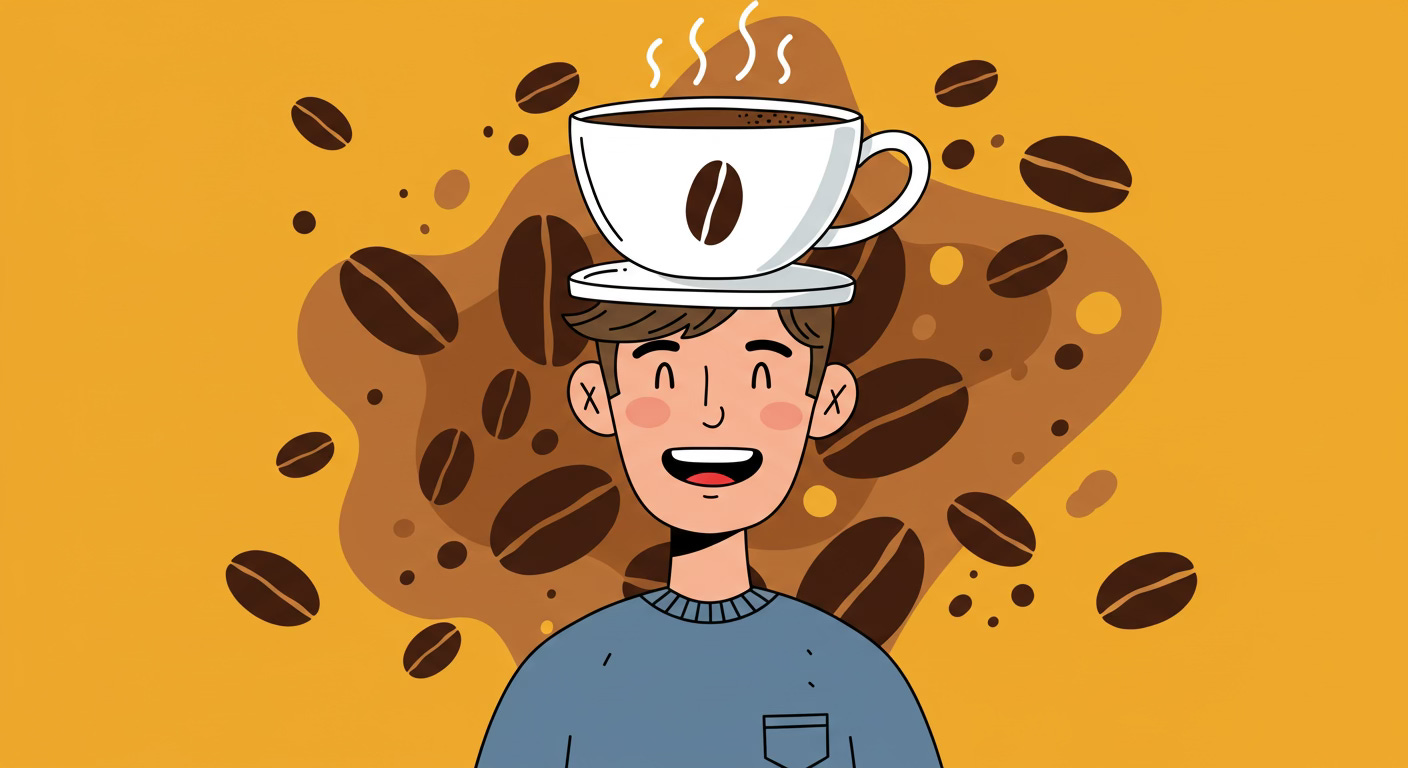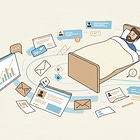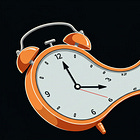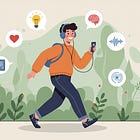Have another coffee ☕ Science says you should
Relax about your caffeine habit, the data is on your side
Coffee is the co-founder that never lets you down. It gets you through mornings and calls, and it helps when deadlines stack up.
And science keeps backing it. Study after study shows coffee helps you live longer, think clearer, and protect your health.
Energy drinks, syrups and cream don’t. Plain coffee does, and the third cup is often doing more than you think.
So if you’ve ever felt bad about your third coffee of the day, the research is on your side.
Here’s what you need to know: 👇🏻
The science shots
Live longer: A 2025 Tufts study of 46,000 people found coffee drinkers had up to a 17% lower risk of death. Benefits vanished if sugar or cream were added.
Stay sharp: A Harvard study following women for 30 years found regular coffee drinkers were more likely to stay mentally sharp, strong, and healthy past 70.
Boost mood: A large study showed coffee drinkers were half as likely to die by suicide compared to non-drinkers, suggesting a real antidepressant effect.
Protect the body: Meta-analyses link 3 cups daily to lower risks of heart disease, diabetes, liver conditions, and dementia.
Extreme case: Drinking 4+ cups daily was once tied to a 64% lower risk of death vs. non-drinkers.
Hydration before that first cup
After eight hours without water, you wake up dehydrated. Coffee doesn’t fix that.
So here’s the practical play: hydrate first, then caffeinate.
I have an effervescent vitamin C or multivitamin with a cup of water before my first coffee (hot in the winter, cold in the summer) and it does the trick!
You’ll feel better, and you may crave a bit less coffee. It also helps your brain wake up without the wobble.
How much is too much?
Most experts put the sweet spot at about 3-4 cups a day.
That’s around 300-400mg of caffeine, which is the equivalent of 6-7 espressos.
Go beyond that and the upside drops. You’re more likely to deal with headaches, jitters, or broken sleep.
What ruins it?
There’s a catch: the benefit seems strongest with black coffee.
The Tufts study found that even a teaspoon of sugar or cream erased the protective effect.
And it makes sense: coffee brings antioxidants and polyphenols. Sugar and saturated fat can cancel out some of that upside.
If you want the upside, go easy on syrup-heavy drinks.
Keep it simple, keep it black.
When’s the cut-off?
Caffeine lingers in your system for hours. For most people, that means the mid-afternoon is the last safe cup. Push later and you’re trading today’s focus for tonight’s broken sleep.
Everyone metabolises caffeine differently, but if you’re staring at the ceiling at 2am, your 4pm flat white is probably the reason.
Watch the coffee shop trap
One more thing: a “medium” latte at Starbucks or Costa usually packs two or three espresso shots. That’s double or triple what you think you’re drinking.
If you’re aiming to stay within 3-4 cups a day, don’t let one oversized cup blow your limit.
The coffee nap hack
There’s one trick that sounds gimmicky but is rooted in science: the coffee nap, also known as a nappuccino.
Here’s how it works: A quick nap clears adenosine, the chemical that makes you feel tired. Coffee blocks the leftover adenosine from building back up. Combine the two and you get a sharper reset than either on its own.
The method is simple: drink a coffee fast, set a timer for 15–20 minutes, and wake up just as the caffeine kicks in. You’ll feel like you’ve gained an extra hour of sleep.
If your 3pm slump keeps wrecking your focus, this is the hack worth trying.
Myths worth busting
Energy drinks ≠ coffee. Sugar, additives, and high doses of synthetic caffeine wipe out the benefits.
Decaf isn’t useless. Some studies still show health gains from decaf, suggesting the compounds in coffee matter beyond caffeine.
Stronger isn’t always better. Past 400mg a day, the benefits flatten out and the risks rise.
The ritual matters
Coffee holds up better than most quick fixes.
For most people, around three cups a day (6 shots) is the sweet spot.
Aim for black coffee, keep it simple, and stop by mid-afternoon.
After that, sleep usually pays the price. Until then, enjoy it.
Your body (and your business) will thank you.








As an Arab , we only drink tea or coffee .. so 5-10 is the average coffee you consume per day ( smaller cup though)
And we got creative ( white coffee, black coffee, green coffee) milk on coffee is the weirdest thing you can ask for your coffee .. we serve coffee with sugar or no sugar ..
All of this is music to my ears ☕
I like strong, black coffee and not taking it with sugar is work in progress